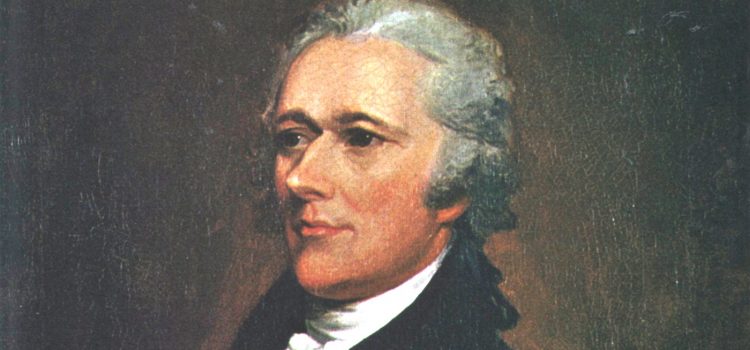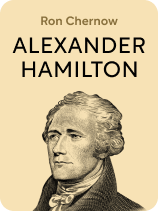

This article is an excerpt from the Shortform book guide to "Alexander Hamilton" by Ron Chernow. Shortform has the world's best summaries and analyses of books you should be reading.
Like this article? Sign up for a free trial here.
What was Alexander Hamilton’s early life like? How did Hamilton go from an underprivileged boy in the Caribbean to a successful writer?
Hamilton’s childhood is described in Alexander Hamilton by Ron Chernow as a rags-to-riches story. While some details about Hamilton’s parentage and upbringing are still unknown, there’s no denying that he had an extraordinary transformation.
Keep reading to learn more about the early life of one of the most influential political figures in America.
Hamilton’s Early Life
Throughout the biography, Chernow emphasizes that Hamilton was something of an outsider among the Founding Fathers (the revolutionary leaders who founded the United States) who nonetheless made essential contributions to the formation of the new country. While most Founding Fathers came from aristocratic backgrounds, Alexander Hamilton’s early life consisted of being born to a poor family around 1757 and was raised on the islands of St. Kitts, Nevis, and St. Croix in the Caribbean. The exact details of Hamilton’s parentage have been debated by scholars, and throughout his life he was mocked for being illegitimate (his parents were never officially married) and possibly mixed-race, though Chernow dismisses the latter claim.
(Shortform note: Several US presidents were also suggested to be mixed-race during their lifetimes, including Thomas Jefferson and Abraham Lincoln, but these suggestions came primarily from political enemies. In the deeply racist 18th and 19th centuries, any African or Native American ancestry could disqualify a person from participating in politics, so questioning a white man’s racial background would have been understood as a grievous insult. In the end, neither historical records nor DNA testing suggest that there was ever a non-white president prior to the election of Barack Obama in 2008. No such testing has been done on Hamilton, but most scholars agree with Chernow that his father was the white Scotsman James Hamilton.)
Hamilton found early success as a writer for his local newspaper, and around 1772 he left for the American mainland to pursue an education. He attended college in New York, receiving what Chernow calls the traditional education of a gentleman, which emphasized rhetoric, literature, philosophy, and politics. At this time, Hamilton was exposed to the burgeoning American revolutionary movement and began writing and speaking publicly in support of anti-British action, such as the Boston Tea Party of 1773, in which a band of revolutionaries destroyed tea imports from England to protest oppressive new taxes.
| The Tea Party’s Impact The Boston Tea Party was part of a larger resistance movement against taxes on British imports, with many colonists declaring that it was unjust for the British government to tax them without allowing them voting rights. The tea destroyed would be worth over a million dollars today, and Britain responded harshly, passing a series of laws closing the Boston harbor and revoking the charter for the entire state of Massachusetts, essentially dissolving local government in favor of direct British rule. The Tea Party is considered a key event in the history of the Revolutionary War, and in 2009, a conservative political movement named itself the Tea Party movement in reference to this event. Members staged aggressive protests advocating for lowered taxes and decreased government spending following the 2008 recession. As of the 2020s, the Tea Party movement is defunct, having been absorbed back into the mainstream Republican party. |
In 1774, revolutionaries formed the First Continental Congress, in which representatives from twelve out of the thirteen American colonies gathered to share their grievances against British rule, write a petition requesting better treatment, and declare a boycott of British goods. Pro-Britain critics called the Congress treasonous and insisted that the colonies had no hope of winning a fight against Britain.
Hamilton responded by writing two pamphlets in which he argued that Britain had repeatedly violated the rights of American colonists and denied them the opportunity to legally advocate for themselves. Forming the Congress was the next logical step, a moral necessity for those who believed in justice, and not necessarily a precursor to violence, though Hamilton argued that victory was possible if it came to that. Chernow states that the pamphlets were widely read and admired for their clear argumentation and thorough analysis of British and colonial law.
| The Social Contract Hamilton’s argument, like that of many American revolutionaries, was based on the political theory of the “social contract” as described by Enlightenment thinkers like Thomas Hobbes, John Locke, and Jean-Jacque Rousseau. These philosophers argued that an ideal society functions by the people willingly giving up their rights to the government in exchange for order and security. For example, people sacrifice some of their freedom by agreeing to obey laws forbidding violence, but they benefit from the safer society that results. However, there are important limits to the social contract. Locke argued that people have certain inherent rights that can never be justly taken away, while Rousseau argued that people have the right to democratically choose which laws they live under. American revolutionaries claimed that Britain had violated their rights by denying them the ability to vote or to elect representatives in Parliament, essentially making it impossible for them to participate in government. The result was a system that exploited the colonists more than it benefited them. |

———End of Preview———
Like what you just read? Read the rest of the world's best book summary and analysis of Ron Chernow's "Alexander Hamilton" at Shortform.
Here's what you'll find in our full Alexander Hamilton summary:
- The biography of Alexander Hamilton that was adapted into the Broadway musical
- The life and influence of the overlooked Founding Father
- How Hamilton's life ended in scandal and a fatal duel






